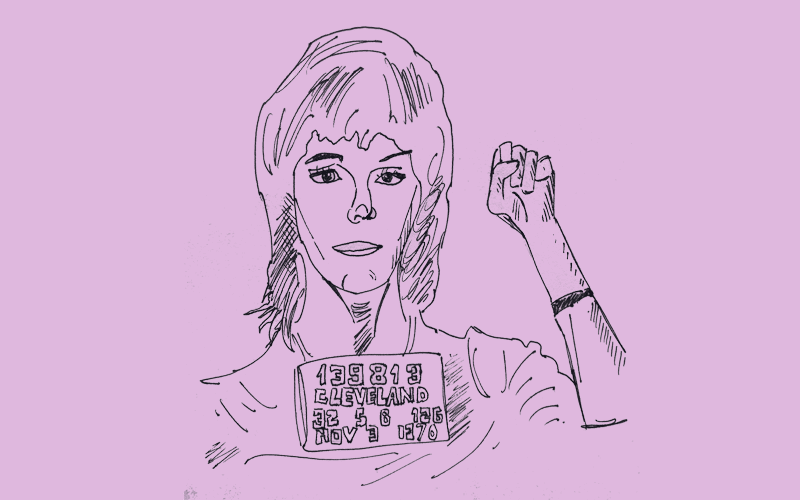The resurgent momentum of Black Lives Matter protests in recent months has seen various celebrities emerge from their ‘apolitical’ slumber to voice support, sharing posts on social media and making news for turning up to protests. While celebrities have the power to bring issues to a larger audience, their activist efforts more often than not de-politicise and obscure the systemic nature of the issues they are trying to fight against.
As members of the elite ruling class whose hoarded wealth is reliant on continued mass exploitation and suffering under capitalism, it is not in the interest of celebrities to commit to challenging the established order. It may be tempting to call on celebrities to act as leaders and give a voice to movements, but the majority of their pretensions to activism are self-serving and mediated by a PR team for the promotion of their own brand image.
Furthermore, celebrity support for movements often defangs radical messages by advocating for liberal solutions, such as voting for Biden or checking ‘unconscious racial bias’ rather than abolishing the carceral apparatus. Mainstream celebrity activism, which typically takes the shape of humanitarianism through NGOs such as the Leonardo DiCaprio Foundation, is not a challenge to global inequality and neoliberal capitalism. Instead, it promotes and legitimates the very forms of global inequality it claims to redress by defusing and institutionalising political anger. In ‘Celebrity Humanitarianism: the Ideology of Global Charity’ Ilan Kapoor writes that “the overwhelming tendency is to tackle the symptoms rather than the causes, the quick and efficient managerial fixes rather than the more complex political struggles.”
The type of militant activism that is needed to transform society is not the type that advances a celebrity’s reputation, for it would require them to be traitors to their own position, sacrificing a life of comfort for on-the-ground action. Jane Fonda is an example of a celebrity who committed much of her life to activism after being born into a privileged family and gaining prominence through her role in ‘Barbarella’. Fonda’s dedicated opposition to the Vietnam War required courage; she was harassed, her reputation smeared, and she was denounced as a national traitor.
During the 1960s Fonda supported the Black Panther Party, a Marxist group which began as armed patrols for self-defence against police brutality; she called them “our revolutionary vanguard… we must support them with love, money, propaganda and risk.” In the 70s Fonda became heavily involved in the anti-war movement. Her most controversial action was her trip to North Vietnam in 1972 where she denounced US military policy on radio programs, earning the nickname ‘Hanoi Jane’ after the media photographed her on an anti-aircraft gun. The backlash received for rebelling against the state was frightening; she became the target of a three-year COINTELPRO operation in which her home was raided, and her children were followed from school.
Another actress who was effectively blacklisted from Hollywood was Jean Seberg, famous for her role in the French New Wave film ‘Breathless’. Seberg developed severe mental health issues after being ruthlessly subjected to COINTELPRO for her covert financial support of the Black Panthers. Recognising her as a domestic threat, the FBI stalked her, tapped her phone, and searched through her mail. In 1970, they sent false allegations to Hollywood gossip columns claiming that Seberg was pregnant with a Panther leader’s child and not her husband’s. Traumatised by the defamation, Seberg had a miscarriage. She later attempted suicide on numerous anniversaries of the child’s death and tragically died at age 40.
In her memoir ‘A Taste of Power,’ Panther leader Elaine Brown wrote that, “there was nothing radically chic about Jean Seberg… I felt her genuineness and decency.” The phrase ‘Radical Chic’ refers to Tom Wolfe’s 1970 essay that lampooned celebrities who endorsed revolutionary causes. Wolfe’s criticism of the composer Leonard Bernstein for hosting a party for the Black Panthers to raise bail funds effectively intimidated a significant base out of supporting them. In Panther leader Donald Cox’s autobiography, he described Wolfe as a “leech” for profiting the “most from the evening”.
While celebrity activism and humanitarianism since the 1970s has become more deeply entrenched in a marketing and promotion machine anchored in neoliberal capitalism, the FBI continues its aggressive surveillance of activists involved in movements including Black Lives Matter. Wealthy elites donating only a small percentage of their wealth, offering liberal statements, and centring their own benevolence provides no challenge to the established order, whereas those who betray their own class through life-long opposition to capitalism and imperialism do. As twitter user @jestom quipped in late May “those of us who are middle class/wealthy must accept our role, as paypigs to the revolution”.





